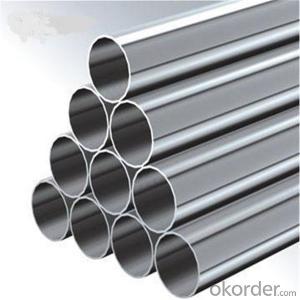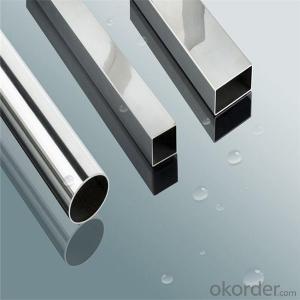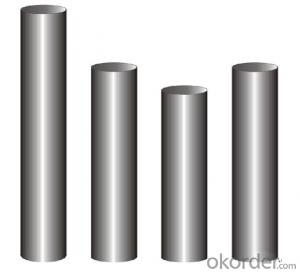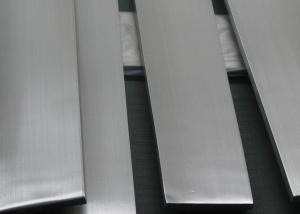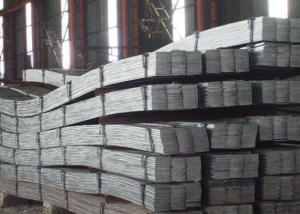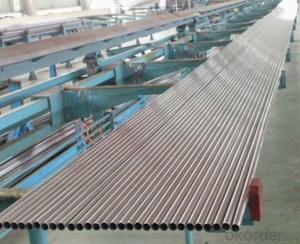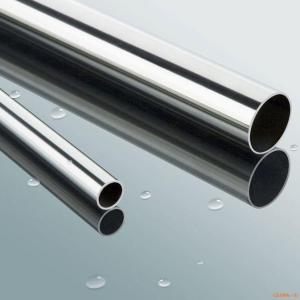SS 904L Seamless Stainless Steel Pipe in Wuxi ,China
- Loading Port:
- Shanghai
- Payment Terms:
- TT OR LC
- Min Order Qty:
- 5 m.t.
- Supply Capability:
- 25000 m.t./month
OKorder Service Pledge
OKorder Financial Service
You Might Also Like
Item specifice
316 stainless steel pipe
Product Description
Name | Stainless Steel Seamless & Welded Tube &Pipe | |||||
Items | Square tubes, round tubes, oval pipes, special shaped pipes, empaistic pipes, fittings | |||||
Standard | ASTM A554, A249, A269 and A270 | |||||
Material Grade | 201: Ni 0.8%~1% | |||||
202: Ni 3.5%~4.5% | ||||||
304: Ni 8%, Cr 18% | ||||||
316: Ni 10%, Cr 18% | ||||||
316L: Ni10%~14% | ||||||
430: Cr16%~18% | ||||||
Outer Diameter | 9.53mm--159mm | |||||
Thickness | 0.3mm - 3.0mm | |||||
Length | 6m or as customers' request | |||||
Tolerance | a) Outer Diameter: +/- 0.2mm | |||||
b) Thickness: +/- 0.02mm | ||||||
c) Length: +/- 5mm | ||||||
Surface | 180G, 240G, 320G Satin / Hairline 400G, 600G Mirror finish | |||||
Application | handrail,railing, staircase, weldmesh screen,door,window, balcony,fence,bench,furniture,etc | |||||
Test | Squash test, extended test, water pressure test, crystal rot test, heat treatment, NDT | |||||
Chemical Composition of Material | Material
Composition | 201 | 202 | 304 | 316L | 430 |
C | ≤0.15 | ≤0.15 | ≤0.08 | ≤0.035 | ≤0.12 | |
Si | ≤1.00 | ≤1.00 | ≤1.00 | ≤1.00 | ≤1.00 | |
Mn | 5.5-7.5 | 7.5-10 | ≤2.00 | ≤2.00 | ≤1.00 | |
P | ≤0.06 | ≤0.06 | ≤0.045 | ≤0.045 | ≤0.040 | |
S | ≤0.03 | ≤0.03 | ≤0.030 | ≤0.030 | ≤0.030 | |
Cr | 13-15 | 14-17 | 18-20 | 16-18 | 16-18 | |
Ni | 0.7-1.1 | 3.5-4.5 | 8-10.5 | 10-14 | ||
Mo | 2.0-3.0 | |||||
Mechanical Property | Material Item | 201 | 202 | 304 | 316 | |
Tensile Strength | ≥535 | ≥520 | ≥520 | ≥520 | ||
Yield Strength | ≥245 | ≥205 | ≥205 | ≥205 | ||
Extension | ≥30% | ≥30% | ≥35% | ≥35% | ||
Hardness (HV) | <105< span=""> | <100< span=""> | <90< span=""> | <90< span=""> | ||
Our Work shop
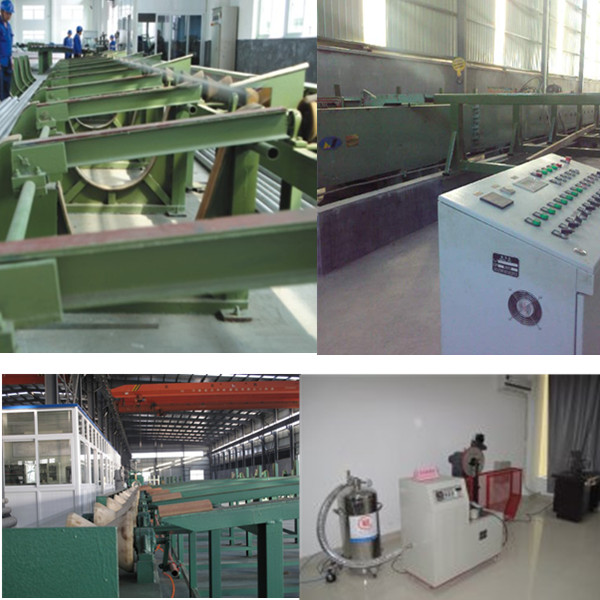
Our products:
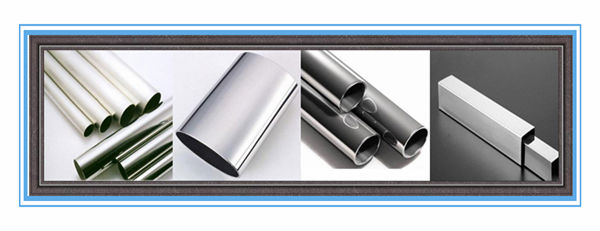
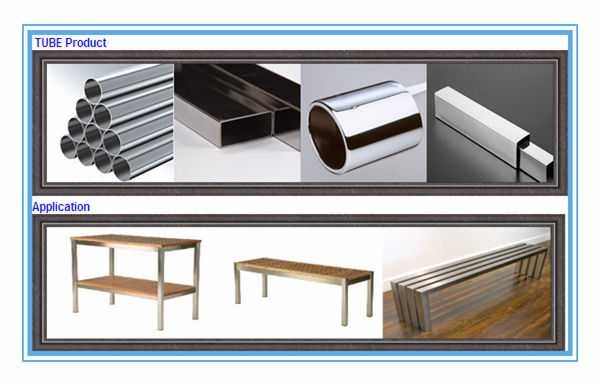
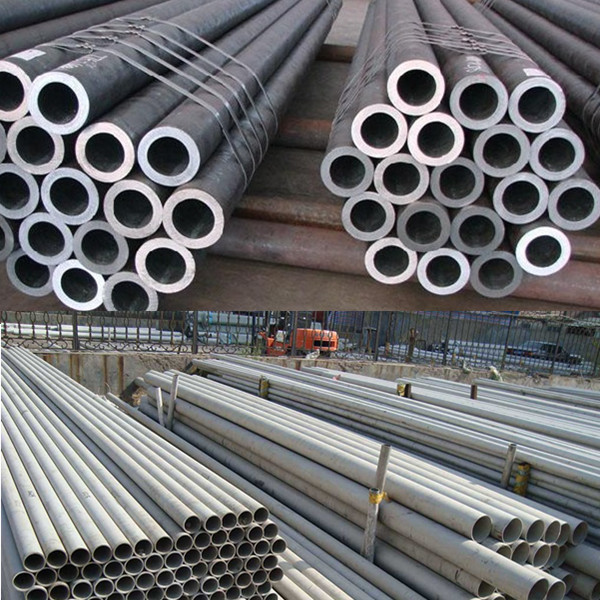
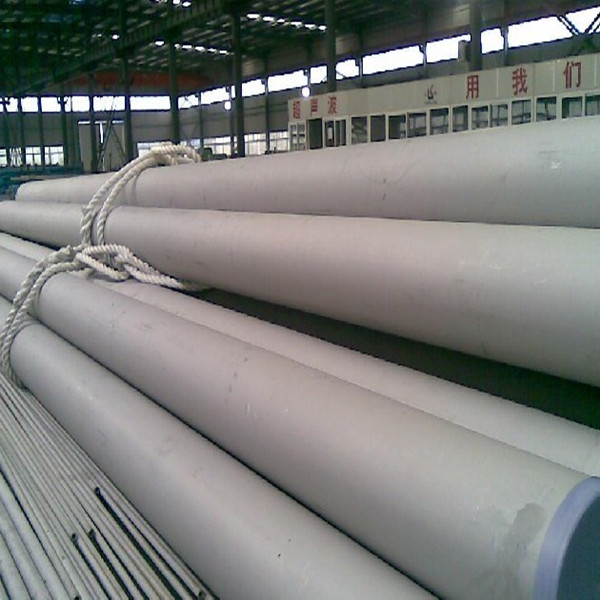
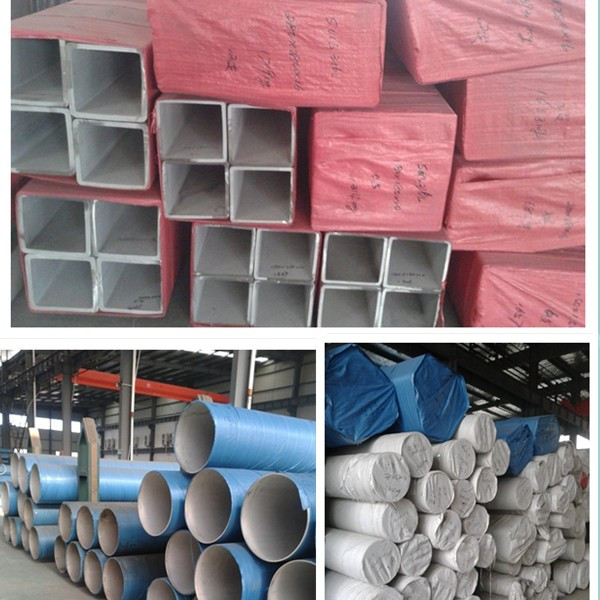
Definition of stainless steel(Adopted form Wikipedia)
In metallurgy, stainless steel, also known as inox steel or inox from French "inoxydable",
is defined as a steelalloy with a minimum of 10.5% to 11% chromium content by mass.
Stainless steel does not readily corrode, rust or stain with water as ordinary steel does,
but despite the name it is not fully stain-proof, most notably under low oxygen, high salinity,
or poor circulation environments. It is also called corrosion-resistant steel or CRES
when the alloy type and grade are not detailed, particularly in the aviation industry.
There are different grades and surface finishes of stainless steel to suit the environment
the alloy must endure. Stainless steel is used where both the properties of steel
and resistance to corrosion are required.
- Q:Can stainless steel pipes be used for underground irrigation systems?
- Underground irrigation systems can indeed utilize stainless steel pipes. This material, known for its durability and resistance to corrosion, proves apt for instances where the pipes come into contact with moisture and soil conditions. Due to its ability to withstand high pressure and temperature variations, stainless steel stands as a favored option for underground irrigation systems. Furthermore, its extended lifespan surpasses that of alternative materials, thereby diminishing the necessity for frequent repairs or replacements. Nevertheless, it remains crucial to guarantee proper installation and insulation of the pipes to avert potential damage caused by soil movement or external factors.
- Q:What is the difference between stainless steel pipes and PVC pipes?
- Stainless steel pipes are made from a durable and corrosion-resistant material, while PVC pipes are made from a lightweight and cost-effective plastic. Stainless steel pipes are suitable for high-pressure and high-temperature applications, while PVC pipes are commonly used for water supply and drainage systems. Additionally, stainless steel pipes have a longer lifespan and can withstand harsh environmental conditions, whereas PVC pipes may degrade over time and are more prone to cracking or breaking.
- Q:How are stainless steel pipes different from carbon steel pipes?
- Stainless steel pipes and carbon steel pipes exhibit various dissimilarities encompassing their composition, corrosion resistance, and cost. To begin with, the composition of stainless steel pipes encompasses a notable amount of chromium, which imparts them with their distinctive corrosion resistance. Conversely, carbon steel pipes primarily consist of iron and carbon, devoid of any significant alloying elements. This divergence in composition endows stainless steel pipes with enhanced resistance against corrosion, oxidation, and the formation of rust when exposed to diverse environmental conditions or fluids. Additionally, stainless steel pipes possess exceptional strength and durability attributed to their alloying elements, such as nickel and molybdenum, which augment their mechanical properties. In contrast, carbon steel pipes, while sturdy, do not possess the same level of strength and durability as stainless steel pipes. Furthermore, stainless steel pipes exhibit high resistance to heat, rendering them suitable for applications involving elevated temperatures or extreme heat conditions. On the other hand, carbon steel pipes, albeit having satisfactory heat resistance, may not be as effective as stainless steel pipes in such applications. Lastly, the cost aspect plays a notable role in distinguishing stainless steel pipes from carbon steel pipes. Generally, stainless steel pipes are more costly than carbon steel pipes due to the elevated production expenses associated with their alloying elements and corrosion-resistant properties. In summary, stainless steel pipes diverge from carbon steel pipes in terms of their composition, corrosion resistance, strength, heat resistance, and cost. Stainless steel pipes offer superior corrosion resistance, heightened strength, and improved heat resistance, rendering them ideal for applications in corrosive environments or high-temperature conditions. However, they come at a higher cost compared to carbon steel pipes, which continue to be widely used in various industries due to their affordability and moderate mechanical properties.
- Q:What is the external coating used for stainless steel pipes?
- The external coating used for stainless steel pipes can vary, but common options include epoxy, polyethylene, or polypropylene coatings.
- Q:Can stainless steel pipes be insulated with polysulfone?
- Stainless steel pipes can indeed be insulated with polysulfone. Polysulfone is a highly durable and heat-resistant material that is commonly used for insulation purposes. It has excellent thermal insulation properties, making it suitable for insulating stainless steel pipes in various applications. Additionally, polysulfone is known for its resistance to chemicals, making it a suitable choice for environments where corrosion or chemical exposure is a concern. However, it is important to ensure that the polysulfone insulation is compatible with the specific requirements and temperatures of the stainless steel pipes being insulated. Consulting with a professional or referring to the manufacturer's guidelines can help determine the suitability of using polysulfone insulation for stainless steel pipes in a particular application.
- Q:Can stainless steel pipes be insulated for soundproofing?
- Yes, stainless steel pipes can be insulated for soundproofing. Insulating stainless steel pipes can help reduce the transmission of noise and vibrations through the pipes. There are various methods and materials that can be used to insulate the pipes, such as acoustic wraps, foam insulation, or mass-loaded vinyl. These materials are designed to absorb or block sound waves, preventing them from traveling along the pipes and into the surrounding environment. Properly insulating stainless steel pipes can significantly improve soundproofing in residential, commercial, or industrial settings, making them an effective solution for noise reduction.
- Q:Are stainless steel pipes suitable for power plant systems?
- Yes, stainless steel pipes are suitable for power plant systems. They offer excellent corrosion resistance, high strength, and durability, making them ideal for transporting various fluids and gases in power plant environments. Additionally, stainless steel pipes can withstand high temperatures and pressures, ensuring reliable and efficient operations in power generation facilities.
- Q:What is the corrosion resistance of stainless steel pipes?
- Stainless steel pipes offer excellent corrosion resistance due to the presence of chromium in their composition. Chromium reacts with oxygen in the atmosphere to form a thin, protective layer of chromium oxide on the surface of the pipe. This oxide layer acts as a barrier, preventing further oxidation and corrosion of the underlying metal. Additionally, stainless steel pipes are often alloyed with other elements such as nickel and molybdenum, which further enhance their corrosion resistance. As a result, stainless steel pipes are highly resistant to rust, pitting, and other forms of corrosion, making them suitable for a wide range of applications in various industries, including plumbing, oil and gas, chemical processing, and marine environments.
- Q:What are the different types of stainless steel pipe caps?
- There are various types of stainless steel pipe caps, including threaded caps, socket weld caps, butt weld caps, and compression caps.
- Q:What does "stainless steel pipe" DN mean?
- DN is nominal diameter, nominal diameter (or nominal diameter), that is, all kinds of pipe and pipe accessories of universal caliber. The pipes of the same nominal diameter can be connected with each other and are interchangeable. It is not the outer diameter or inner diameter of the pipe in actual sense, although its value is close to or equal to the diameter of the pipe;
1. Manufacturer Overview |
|
|---|---|
| Location | |
| Year Established | |
| Annual Output Value | |
| Main Markets | |
| Company Certifications | |
2. Manufacturer Certificates |
|
|---|---|
| a) Certification Name | |
| Range | |
| Reference | |
| Validity Period | |
3. Manufacturer Capability |
|
|---|---|
| a)Trade Capacity | |
| Nearest Port | |
| Export Percentage | |
| No.of Employees in Trade Department | |
| Language Spoken: | |
| b)Factory Information | |
| Factory Size: | |
| No. of Production Lines | |
| Contract Manufacturing | |
| Product Price Range | |
Send your message to us
SS 904L Seamless Stainless Steel Pipe in Wuxi ,China
- Loading Port:
- Shanghai
- Payment Terms:
- TT OR LC
- Min Order Qty:
- 5 m.t.
- Supply Capability:
- 25000 m.t./month
OKorder Service Pledge
OKorder Financial Service
Similar products
New products
Hot products
Related keywords
